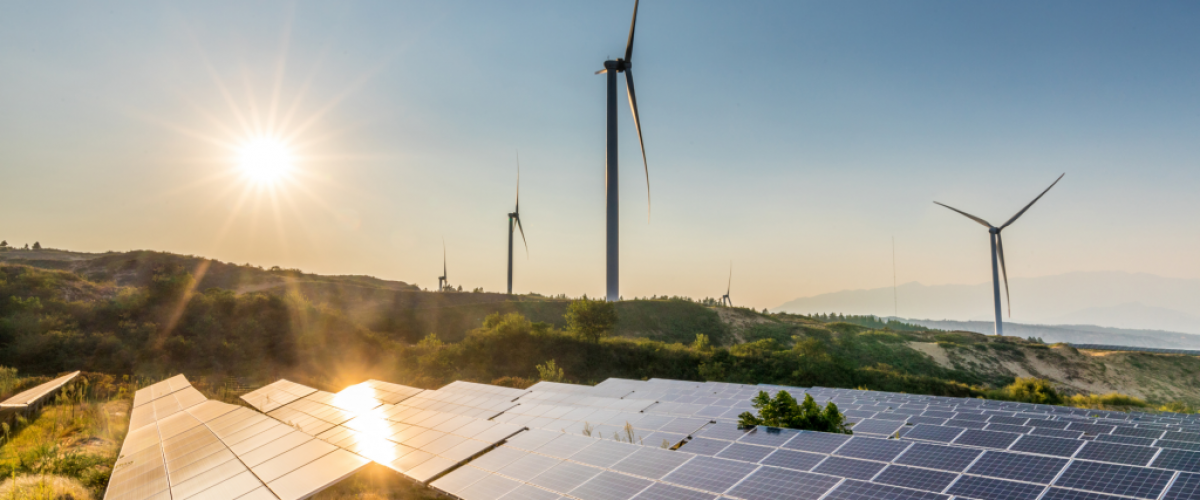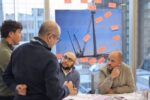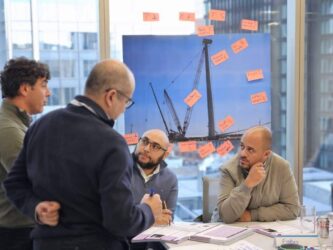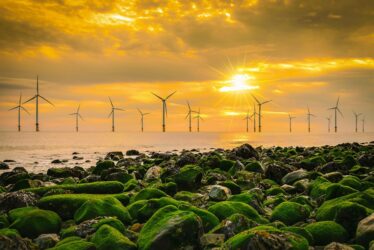COP26 set some ambitious goals. This was critical to its success but it also meant disappointment would inevitably be part of the deal. “We have kept 1.5 degrees alive,” said conference president, Alok Sharma, in his closing comments. “But, its pulse is weak and it will only survive if we keep our promises; if we translate commitments into rapid action.”
Many environmental activists and groups have been quick to accuse COP26 of failing to deliver. Greta Thunberg’s ‘blah, blah, blah’ indictment is hard to deny. Yet, what alternative do we have but to keep urging governments, business leaders, organisations and communities to act now and translate the promises into action?
This is certainly an uphill task, but take away the political and media noise generated by the summit and ultimately it is still down to individuals and their organisations to play their part, be the leaders, listen to that pulse and ensure our planet’s survival.
ARMSA Academy is one of those organisations. Alongside our clients, we have thrown our weight behind the COP26 goals, and we recognise it is now up to us all to act, and to act quickly. This means that no half measures are allowed.
No half measures in the COP26 race for survival
As the conference began, ARMSA recognised the importance of the COP26 goals to:
- secure global net zero by mid-century and keep 1.5 degrees within reach – which explicitly referred to encouraging investment in renewables
- adapt to protect communities and natural habitats
- mobilise finance, including recognising that both the private and public sector must provide the finance required to secure global net zero
- work together to rise to the challenges of the climate crisis
In line with these goals, we launched our ‘No half measures’ campaign and video, declaring our refusal to accept any half measures in renewables investment, accelerating action, collaboration, and renewables financial structures.
More specifically, at a granular level, we reiterated our commitment to acting locally by:
- enhancing the renewable knowledge economy by harmonising management-decision making standards; create opportunities to develop sustainable projects faster, better and safer
- supporting systemic leadership development; enabling businesses to unite in their objectives to meet energy provision goals
- leveraging innovative technology to impart critical knowledge seamlessly to protect value across the asset lifecycle
- enabling collaboration amongst cross-functional teams and multi-party projects
- contributing to the recovery and rehabilitation of natural resources
Like the overarching COP26 goals, we realise that while these are laudable objectives, they also need to be translated into reality on the ground. And this is where ARMSA’s experience and long-held philosophy comes into play.
These fundamental tenets have been at the heart of our work for decades, and they provide the basis for a holistic, efficient and pragmatic approach to the challenges of the future.
Our approach to advancing skills, embedding systemic leadership, taking individuals and their organisations outside their functional silos, and making collaboration the norm is already shaking up the renewables sector.
Energy policy table talk
As a dynamic and forward-thinking SME, ARMSA knows that sometimes the small contributions can make the biggest impact. COP26 welcomed world leaders and big name businesses, campaigners and activists. But, behind the scenes, the true spirit of the conference’s goal to ‘work together’ was at its strongest as it hosted thousands of diverse events, debates and conversations.
ARMSA contributed to one of these dialogues when we attended an event hosted by NatWest as part of HRH Prince of Wales’ Sustainable Markets Initiative. We joined the likes of Google and Microsoft to discuss and share ideas on how to take forward six key areas identified in NatWest’s ‘A Springboard to Sustainable Recovery Report’: funding access, awareness, knowledge, skills and capabilities, market access and navigation.

On our table of 11, we focused on skills and capabilities. Building skills and fostering leadership has never been more important as the sector rapidly expands in response to the net zero challenge. And developing innovative decision-making solutions and supporting in-workflow learning is at the heart of ARMSA’s approach.
During the discussions, we put forward our ideas on how to collectively empower renewables professionals. Specifically, we talked about the importance of identifying the conditions in the macro-business environment that often force companies to function in silos by separating standard business performance and financial metrics from those addressing sustainability.
Forward-thinking leaders in the sector already recognise that reporting performance metrics in silos and, by extension, managing in silos, is not going to deliver change. They need to view their businesses as holistic entities where everything is interconnected.
But this also requires action at the macro-level. And we are calling on policy-makers, governments and investors to support business leaders in viewing their operations more holistically, so their businesses can function as total entities, rather than entities of functions.
Systemic leadership
If there’s one universally agreed takeaway from COP26, it’s that the road ahead is going to be long and hard. But to make progress, we need to innovate, collaborate, think creatively and act locally. It’s all we can do.
The renewables sector is in an enviable and unique position. The COP26 goals recognised that the sector’s contribution is critical to keeping 1.5 degrees alive. And as part of that, we and our clients are privileged.
But as we all come under greater financial, political and public pressure to perform, it is even more critical that organisations are equipped with the leadership, skills, and financial structures and incentives to respond.
As leaders and decision-makers in the renewables market, you know your actions are integral to success in the race to net zero. The everyday decisions you, your colleagues, and your organisation collectively make are influencing the development, execution and management of sustainable and profitable renewable energy projects.
At ARMSA, we support you and your teams in deciding how, when and where you make those critical decisions. We’re already there helping you play your part in achieving the COP26 promises, strengthening that weak pulse, and keeping 1.5 degrees alive.
Join now to watch our systemic leadership mini-series.
COP26 and the race for survival © 2021 by Khalida Suleymanova – ARMSA is licensed under CC BY-NC-ND 4.0






